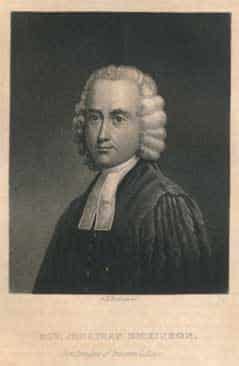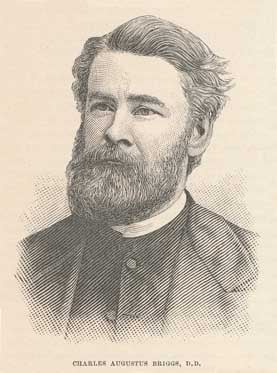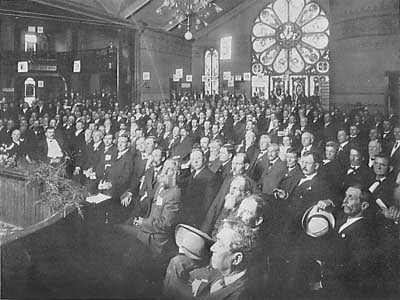Our plan this year is to visit each Lord’s Day the studies on the Westminster Shorter Catechism prepared by the Rev. Leonard T. Van Horn. Rev. Van Horn was one of the founding fathers of the PCA, pastored churches in Alabama, Florida, Georgia, New Mexico, Mississippi., and Tennessee. He served for a time as Vice President at Covenant Theological Seminary and served as a professor at Reformed Theological Seminary. Rev. Van Horn wrote these studies while serving as pastor of the First Presbyterian Church of Port Gibson, MS.
STUDIES IN THE WESTMINSTER SHORTER CATECHISM
by Rev. Leonard T. Van Horn
Vol. 1 No. 2, February, 1961
Question 2. — What rule has God given to direct us how we may glorify and enjoy Him?
Answer — The Word of God, which is contained in the Scriptures of the Old and New Testaments, is the only rule to direct us how we may glorify and enjoy Him.
Scripture References: 2 Tim. 3:18. Isa. 8:20. I John 1:3. Luke 16:29,31.
Study Questions :
1. What is the meaning of the word “rule” in this question?
When this word is used in a religious sense it means a direction or a command. It naturally implies the idea of straightness by which a man may attain the best possible end.
2. Why is it necessary to have such a rule?
It is necessary as man needs an objective standard by which he may pattern his life. The Word of God, as his rule, must be the supreme authority in the life of the man. It should be noted that if man has placed something else above the Word of God, whether it is conscience or tradition or the church, he will tend to use that authority to interpret the Word of God in many facets of his life.
3. What do we mean when we say the Scriptures are the Word of God? We mean that they aie the Word of God in written form. We place no limitations on that statement. We mean that the Bible is the Word of God and the words in the Bible are the very words of God. We mean that the Bible is trustworthy because God inspired it and inspiration includes the very words of Scripture.
4. Some say that the Bible “contains” the Word of God. Is this true?
If they mean by it that the word of God forms the contents of the Bible it is true. But if they mean that the word of God forms only a part of the contents of the Bible and the rest makes up the words of men, they are not speaking the truth. Or if they mean by it that the Bible only becomes the Word of God when the Holy Spirit makes some portions of it applicable to the hearer, they are not speaking the truth. This would make man the judge of the Word of God. When’our Shorter Catechism speaks of “the word of God” it means what the Westminster Standards have historically meant, that is, the Bible, is the Word of God as to both its contents and its form, so that there is nothing in it that God did not want to be in it, and reversely, it contains all that the Lord wanted to be contained therein.
5. Since this Word of God is to be our only rule, how can we know that it is the Word of God?
We know it by our simple acceptance of God’s statement that it is the word of God and that it is perfect. The Holy Spirit shows us Christ as our Saviour and brings the conviction to our hearts that it is the Word of God and we accept it by faith. Our Confession teaches us that our full assurance of the fact that the Bible is infallible and has the authority of God is the work of the Holy Spirit in our hearts.
It is strange that so often the Christian who realizes the theological fact of the authority of the Scripture is the very person that does not live under that authority as he should. There is a great need today for Christians who do not only believe in the authority of the Scriptures but who live as the Scriptures command them to live.
It has been said by many that one of the hardest places for a Bible- believing Christian to live in a way that is consistent with the Word of God is in a conservative Seminary. This sounds surprising and yet so many times it is true. A Professor in a theological seminary once said he thought the reason for this was that there was indeed a concentrated study of theology but not enough concentrated devotional study of the Jesus Christ of the Scriptures. Possibly what is true of many of our seminaries is equally true of many of our churches. Lip service to our creeds is present but heart service to our Saviour is sometimes missing.
Our church today is in the midst of many problems. There are the inroads of a subjective theology where man becomes the judge of Scripture; the cry that is being raised against the conservative position; the emphasis on organizational unity. All of these should motivate us to examine once again our position regarding the authority of Scripture. And in the midst of our examination we should realize that Scripture holds for us a high standard of personal holiness. It is good to be able to say that we believe in our Westminster Standards. It is good to be able to say that we have a great heritage from our forefathers of the Reformation. The danger with us today is the danger of insisting we believe, insisting we have a great heritage without insisting in our daily living that we practice what we say we believe.
The authority of the Scripture is just as effectual, just as binding, in our practice as it is in our principles. There is great danger that the whole tone of the Christian mind in regard to practical Christianity is being lowered. The danger of lowering it in daily, personal living. The danger of lowering it in the concessions we are making to those who deny the faith, who deny it in their actions and aims if not in their statement of belief. The danger of lowering it in the talking a lot about God without walking with Him day by day, moment by moment. Separated Christian living, according to the authority of Scripture, is not present as it should be.
Dr. J. L. Packer says it this way, “To accept the authority of Scripture means in practice being willing, first to believe what it teaches, and then to apply its teaching to ourselves for our correction and guidance.” (Fundamentalism and the Word of God, Pg. 69).
We have a rule by which we may glorify and enjoy Him. Possibly we should remember that Scripture is profitable not only for “doctrine” but also for “instruction in righteousness.”
 Conscious of the potential for schism, on September 17, 1729, Jonathan Dickinson became the main proponent against the total subscriptionist party in the church. His argument was simple. He believed the Bible was the sufficient rule for faith and life. Subscription must be adhered to it and to it alone, not to some man-made summary of it, as good as it might be.
Conscious of the potential for schism, on September 17, 1729, Jonathan Dickinson became the main proponent against the total subscriptionist party in the church. His argument was simple. He believed the Bible was the sufficient rule for faith and life. Subscription must be adhered to it and to it alone, not to some man-made summary of it, as good as it might be.

